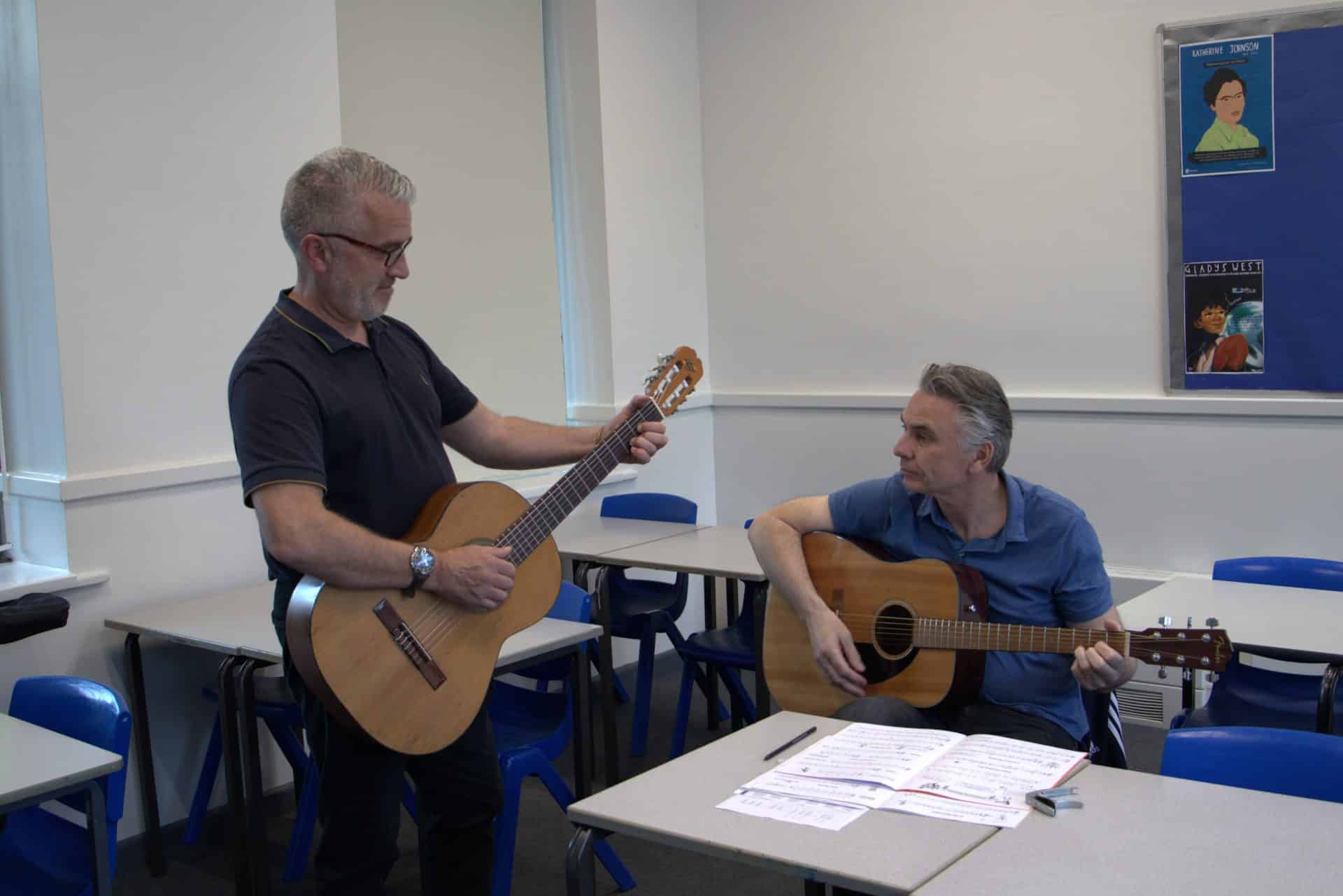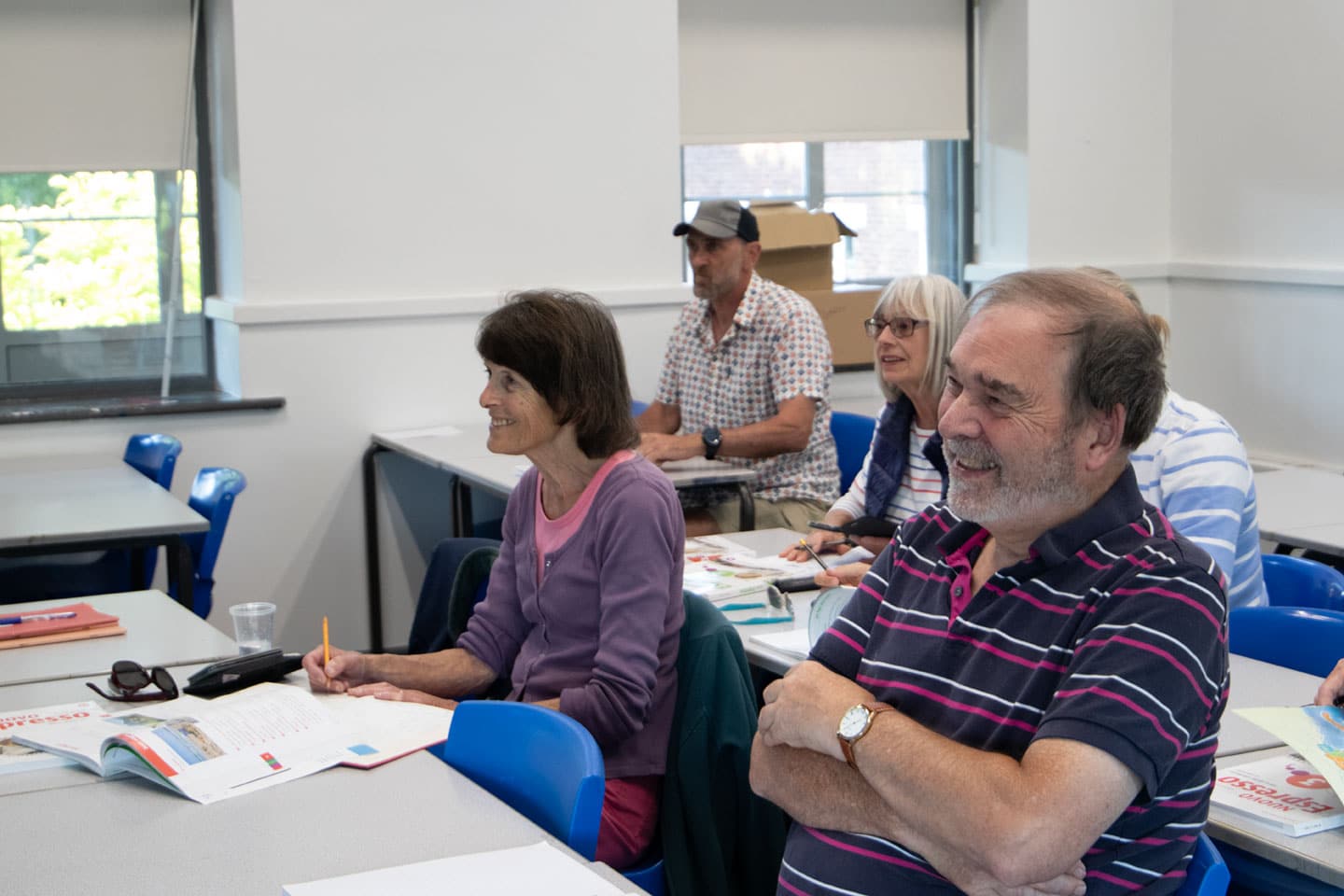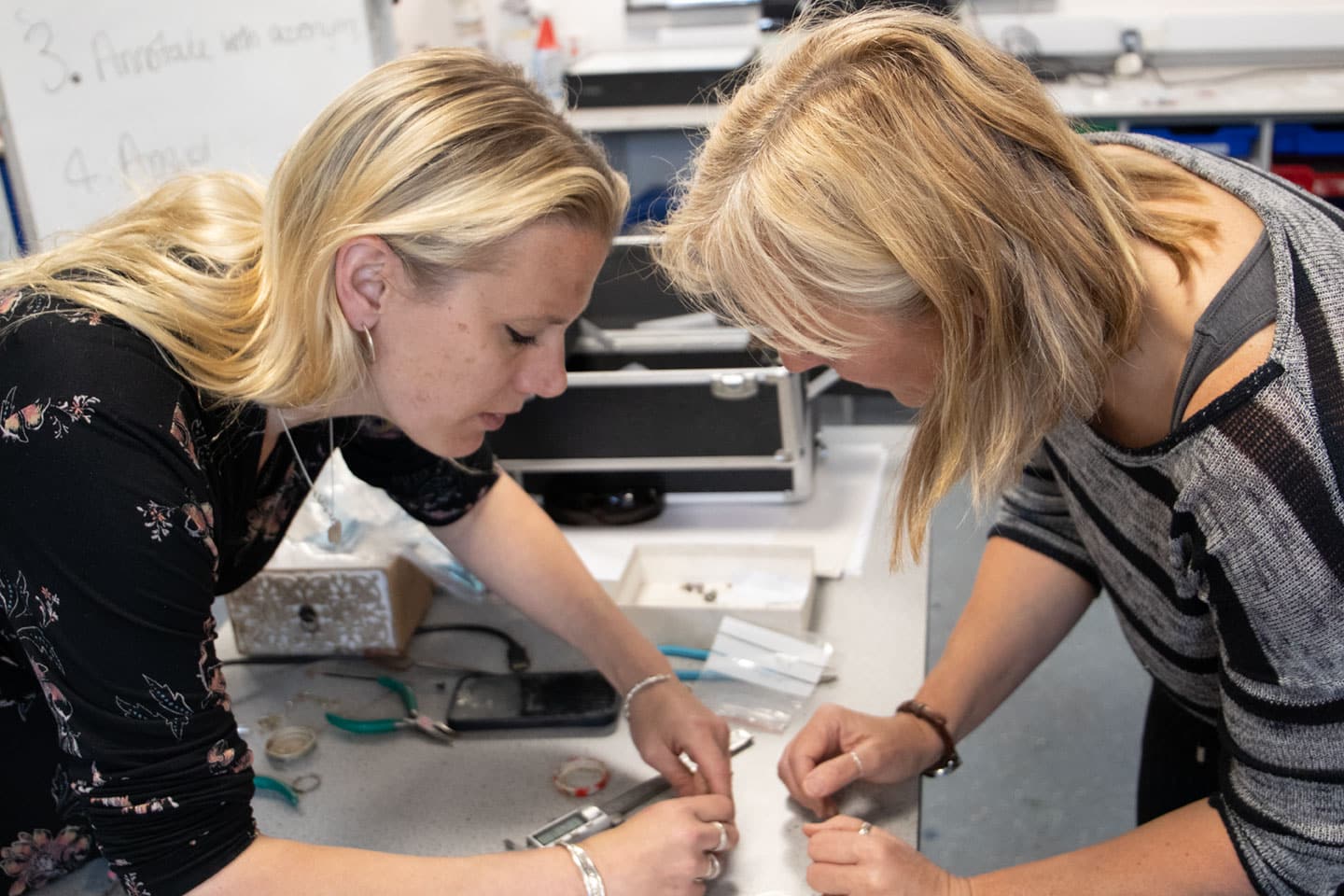Day
All
Friday
Monday
Saturday
Sunday
Thursday
Tuesday
Wednesday
Subject
All
Art & Crafts
Computing
Computing and Photography
English & Maths
English as a Foreign Language
General Courses
Mind & Body
Foreign Language
Event Location
All
Arbury Road Baptist Church
Coleridge Community College
Online
Parkside Community College
St Augustine of Canterbury
St.Lukes
The Community Wing, The Galfrid School
The Fields Children's Centre
Trumpington Community College

Time
September 26 (Thursday) 10:00 am - November 21 (Thursday) 12:00 pm
Location
Coleridge Community College
Radegund Rd, Cambridge CB1 3RJ
length of course
8 weeks
Course details
Brief Description: This course is aimed at anyone who wants to begin their journey to learn patchwork and quilting. The tutor aims to cover a variety of common techniques and the
READ MORE
Course details
Brief Description:
This course is aimed at anyone who wants to begin their journey to learn patchwork and quilting. The tutor aims to cover a variety of common techniques and the blocks can be repeated to make into anything from a large quilt, to a cushion or a bag. Ideal for anyone wanting to make a baby quilt. Others may wish to attend to perfect their skills and be guided to work on a personal project.
Previous Experience and Knowledge Needed?
Basic experience in using a sewing machine is essential such as being able to wind a bobbin, thread up the machine and sew in a straight line. Patchwork is much easier to access than dressmaking and is a great way to use even basic sewing skills to be creative.
Learning Outcomes:
By the end of the eight-week course, newcomers will have the opportunity to:
- learn all about fabric preparation and how to use the correct tools and equipment such as a rotary cutter and mat
- sew an accurate ¼” seam and learn why it’s important
- be guided to make traditional block and not so traditional blocks
- learn the basics of quilting and binding
- develop your design skills with colour and shapes
Extra costs on the course for example text book, materials or equipment
The centre has several sewing machines to use or you may prefer to bring your own. You will need your own plastic bobbins/spools as well as basic equipment such as fabric scissors and pins.
In time you will need to purchase your own rotary cutter, mat and ruler.
Patchwork weight fabric is required and places like Hobby Craft will have small packs of ‘fat quarters’ at a reasonable price.
Whilst not essential, more progress will be made if learners have access to a sewing machine at home.
For the first session you will need to bring:
Fabric scissors, a notebook, some fine pins and some cotton fabric such a pack of fat quarters. It’s a good idea to have a colour scheme in mind from the start. The tutor is keen that you resist spending a lot of money on special tools and equipment. This will come in time depending on your needs and pocket.
On completion of this course, what might your next steps be?
Consider returning for another term where you can pick up where you left off to explore even more blocks and extend your skills with more challenging blocks and techniques
Adult Learn and Train offer courses through-out the year.
Try similar courses or maybe look at learning something completely new.
You will find provision on some Saturday and Sundays, you will also find courses available in the day and evening at different venues in Cambridge. Courses vary in length from one-off sessions to 10 weeks or more
TO BOOK YOUR PLACE
£122 (£74 concession) Bookings open now. Please call the office on 01223 712340 to pay with your card
Tutor
Marion CurtisMarion Curtis is a qualified teacher with a degree in Textile Design. Her interests include many forms of textiles including weaving and bobbin lace. She taught art and design technology for over 30 years and more recently has been concentrating on her own design work and working to commission. Marion would describe herself as a ‘Modern Quilter’ and enjoys using improvisational techniques. Opening her studio to the public every year through Cambridge Open Studios, Marion is an active member of Cambridge Quilters and often gives talks and runs workshops. With her art and design background Marion feels very confident she can bring out the ‘designer’ in you.

Time
September 26 (Thursday) 7:00 pm - December 12 (Thursday) 9:00 pm
Location
Coleridge Community College
Radegund Rd, Cambridge CB1 3RJ
length of course
10 weeks
Course details
Brief Description: This Acting Foundation course will offer you a foundation in acting. Working through a variety of theatre games, improvisations and techniques, you will be encouraged to explore your imagination
READ MORE
Course details
Brief Description:
This Acting Foundation course will offer you a foundation in acting. Working through a variety of theatre games, improvisations and techniques, you will be encouraged to explore your imagination and gain confidence in vocal and physical skills. We will use both contemporary and classical text and progress to in-class presentations of scenes and monologues.
Please note: There will be no class on Thursday 17th October (due to a school event) and Thursday 31st October (half term).
Previous Experience and Knowledge Needed?
None.
Learning Outcomes:
By the end of the course, you will have the opportunity to:
• strengthen your ability to speak in public
• gain a basic understanding of a variety of acting techniques
• work on contemporary and classical scenes or monologues
Extra costs on the course for example text book, materials or equipment:
There may be an opportunity to purchase a script to use during the class. This would not exceed £10.
For the first session you will need to bring:
Wear comfortable clothing
ON COMPLETION OF THIS COURSE, WHAT MIGHT YOUR NEXT STEPS BE?
Acting Intermediate – Scene Study course
A higher level acting course.
Adult Learn and Train offer courses through-out the year.
Try similar courses or maybe look at learning something completely new.
You will find provision on some Saturdays and Sundays, you will also find courses available in the day and evening at different venues in Cambridge. Courses vary in length from one-off sessions to 10 weeks or more.
TO BOOK YOUR PLACE
£150 (£90 concession) Please call the office on 01223 712340 to book and pay with your card.
Tutor
Vanessa Ackermanis an actor ,writer and educator.She has extensive experience in teaching students of all ages and abilities in a wide range of educational contexts.

Time
September 26 (Thursday) 1:00 pm - November 21 (Thursday) 3:00 pm
Location
Coleridge Community College
Radegund Rd, Cambridge CB1 3RJ
length of course
8 weeks
Course details
Brief Description: Breathe in, breathe out, and get ready to play with your breath in our "Breathwork for Beginners" course! You will dive into a fun and playful journey
READ MORE
Course details
Brief Description:
Breathe in, breathe out, and get ready to play with your breath in our “Breathwork for Beginners” course! You will dive into a fun and playful journey and discover the magic of conscious breathing. Say goodbye to letting stress control your life and hello to joy as you learn techniques to boost your energy, clear your mind, and find your inner calm. With easy-to-follow exercises and engaging sessions, you’ll be blowing away worries and inhaling happiness in no time. Perfect for all levels, this course is your ticket to a breath of fresh air in your daily routine. Come join us and let’s have some fun with breathwork!
Previous Experience and Knowledge Needed?
None needed.
Learning Outcomes:
By the end of the course, you will have the opportunity to:
- Understand the fundamentals of healthy breathing
- Add tools to your toolbox to handle multiple life scenarios (e.g., emotional regulation, fostering relaxation, releasing stress)
- Develop a daily practice to increase your health and vitality
- Learn how to use breathwork as a meditative practice
For the first session you will need to bring:
Comfortable clothes, water bottle, yoga mat
On completion of this course, what might your next steps be?
Enhance your breathwork practice in terms of a daily routine both for your health and in meditation.
TO BOOK YOUR PLACE
£120 (£72 concessionary price) Please contact the office on 01223 712340 to make payment by debit/credit card or bank transfer
Tutor
Casey HansonCasey Hanson is a SOMA Breath Advanced Instructor who fell in love with breathwork during her own journey confronting stored emotions and experiences. She loves building a sense of community by providing safe, comforting experiences of connection. It is here you will know you belong unconditionally, feel encouraged to shine brightly, and feel safe expressing your playful side! She values connection and community so much that she even has a masters degree in community and regional planning. The inner work is a continual journey and she believes we continue to learn and evolve every day.

Time
September 26 (Thursday) 2:00 pm - December 5 (Thursday) 4:00 pm
Location
Coleridge Community College
Radegund Rd, Cambridge CB1 3RJ
length of course
10 weeks
Course details
Brief Description: Are you interested in learning British Sign Language (BSL)? This introduction course will give you a taste of BSL. Explore British Sign Language as a communication, and a language tool. Topics
READ MORE
Course details
Brief Description:
Are you interested in learning British Sign Language (BSL)? This introduction course will give you a taste of BSL.
Explore British Sign Language as a communication, and a language tool.
Topics covered will include deaf awareness, and receptive language skills.
BSL is now a recognised language, if you have always wanted to find out more, get booked onto the short, funded course.
Please note: The timing is different from the programme of courses – 2pm is the correct entry.
This course is funded by Cambridgeshire Skills, so full attendance is required; you will also need to complete an enrolment form so that the office can apply for the funding and complete an individual learning plan weekly with your tutor.
This course is fully funded if:
You are over 19 years old
You live within Cambridgeshire and Peterborough combined authority and have lived in the UK / an EEA country for the last 3 years.
Contact the office if you would like to confirm your eligibility.
If you do not qualify for funding but would still like to attend contact the office for a price.
Previous Experience and Knowledge Needed?
This course is suitable for learners who are new to signing. No experience needed.
Learning Outcomes:
By the end of the course, you will have the opportunity to:
• Learn the alphabet
• Introduce yourself in BSL
• Learn signs for colours, weather and transport
• Look at receptive language skills
Extra costs on the course for example text book, materials or equipment:
None
For the first session you will need to bring:
Pen/Pencil and notepad/paper
On completion of this course, what might your next steps be?
Level 1 accredited course in BSL.
Adult Learn and Train offer courses through-out the year.
Try similar courses or maybe look at learning something completely new.
You will find provision on some Saturday and Sundays, you will also find courses available in the day and evening at different venues in Cambridge. Courses vary in length from one-off sessions to 10 weeks or more.
TO BOOK YOUR PLACE
This course is operating a waiting list. Contact the Adult Learn and Train office: office@adultlearning.education / 01223 712340 to get added to the waiting list

Time
September 26 (Thursday) 5:15 pm - December 12 (Thursday) 7:15 pm
Location
Coleridge Community College
Radegund Rd, Cambridge CB1 3RJ
length of course
10 weeks
Course details
Brief Description: Are you interested in learning British Sign Language (BSL)? This introduction course will give you a taste of BSL. Explore British Sign Language as a communication, and a language tool. Topics
READ MORE
Course details
Brief Description:
Are you interested in learning British Sign Language (BSL)? This introduction course will give you a taste of BSL.
Explore British Sign Language as a communication, and a language tool.
Topics covered will include deaf awareness, and receptive language skills.
BSL is now a recognised language, if you have always wanted to find out more, get booked onto the short, funded course.
This course is funded by Cambridgeshire Skills, so full attendance is required; you will also need to complete an enrolment form so that the office can apply for the funding and complete an individual learning plan weekly with your tutor.
This course is fully funded if:
You are over 19 years old
You live within Cambridgeshire and Peterborough combined authority and have lived in the UK / an EEA country for the last 3 years.
Contact the office if you would like to confirm your eligibility.
If you do not qualify for funding but would still like to attend contact the office for a price.
Please note: There will be no class on Thursday 17th October (due to a school event) and Thursday 31st October (half term).
Previous Experience and Knowledge Needed?
This course is suitable for learners who are new to signing. No experience needed.
Learning Outcomes:
By the end of the course, you will have the opportunity to:
• Learn the alphabet
• Introduce yourself in BSL
• Learn signs for colours, weather and transport
• Look at receptive language skills
Extra costs on the course for example text book, materials or equipment:
None
For the first session you will need to bring:
Pen/Pencil and notepad/paper
On completion of this course, what might your next steps be?
Level 1 accredited course in BSL.
Adult Learn and Train offer courses through-out the year.
Try similar courses or maybe look at learning something completely new.
You will find provision on some Saturday and Sundays, you will also find courses available in the day and evening at different venues in Cambridge. Courses vary in length from one-off sessions to 10 weeks or more.
TO BOOK YOUR PLACE
This course is operating a waiting list. Contact the Adult Learn and Train office: office@adultlearning.education / 01223 712340 to get added to the waiting list

Time
(Thursday) 1:00 pm - 4:00 pm
Location
Coleridge Community College
Radegund Rd, Cambridge CB1 3RJ
length of course
1 afternoon
Course details
Brief Description: If you enjoy candles at Christmas and love the beauty, light and warmth of a lit candle why not join us for a relaxed and informative workshop, creating high-quality
READ MORE
Course details
Brief Description:
If you enjoy candles at Christmas and love the beauty, light and warmth of a lit candle why not join us for a relaxed and informative workshop, creating high-quality fragranced container candles and wax melts.
Perfect for Christmas presents or for your own home this festive season.
This workshop is designed for total beginners and focuses on the use of natural waxes.
You will be guided through wax selection, wick sizing, fragrance choices, safety and regulatory requirements, giving you enough knowledge to make candles and melts yourself at home.
What will you make?
During the workshop you will be making one travel candle, one large glass container candle and a variety of wax melts.
Previous Experience and Knowledge needed?
No experience needed.
Extra costs of the course?
All costs are included in the course fee. There may be an opportunity to purchase shop made products.
What you need to bring:
All necessary equipment and materials will be provided but a notebook and pen might be useful.
On completion of this course, what might your next steps be?
Adult Learn and Train offer courses through-out the year.
Try similar courses or maybe look at learning something completely new.
You will find provision on some Saturdays and Sundays, you will also find courses available in the day and evening at different venues in Cambridge. Courses vary in length from one-off sessions to 10 weeks or more.
TO BOOK YOUR PLACE
£70 – Please contact the office on 01223 712340 to make payment by debit/credit card, cheque or bank transfer
Tutor
Miller and WardMiller & Ward is a small fine home fragrance business, based in Cambridge and Norfolk. The company was started by cousins, Julie and Carole, when discussing just how much we were spending on well-known brand candles. We decided that with training and enthusiasm we would surely be able to produce premium candles at affordable prices. Fast forward two years of courses, research and testing Miller & Ward was finally launched.

Time
October 10 (Thursday) 6:00 pm - November 7 (Thursday) 9:00 pm
Location
Coleridge Community College
Radegund Rd, Cambridge CB1 3RJ
length of course
3 evenings
Course details
Please note: the main programme is incorrect - this class will take place on a Thursday (not Wednesday) Also due to a school closure on the 17th October the schedule for
READ MORE
Course details
Please note: the main programme is incorrect – this class will take place on a Thursday (not Wednesday)
Also due to a school closure on the 17th October the schedule for the classes is as follows:
Brief Description:
You will have a very busy three hours working on basic bread making techniques each week so please be on time!
You will make a wide range of breads: basic wholewheat, soft white rolls, soda bread, pizzas and more.
You will come away fired up to never buy a loaf of bread from the supermarket again!
The course includes the whole bread making cycle: yeast, mixing, proving, shaping and cooking.
Previous Experience and Knowledge Needed?
No experience needed – just the desire to make bread.
Learning Outcomes:
By the end of the course you will have the opportunity to:
Reliably make bread
Be aware of some the pitfalls
Have the confidence to try new breads
Make great pizzas
Extra costs on the course for example text book, materials or equipment:
Ingredients – the tutor will bring the ingredients for the first session. Please bring along £10 cash to pay him directly.
For the first session you will need to bring:
Apron, tea towel, dish cloth and a container to take your food home.
On completion of this course, what might your next steps be?
The college offers lots of exciting cookery classes throughout the year.
Adult Learn and Train offer courses through-out the year.
Try similar courses or maybe look at learning something completely new.
You will find provision on some Saturday and Sundays, you will also find courses available in the day and evening at different venues in Cambridge. Courses vary in length from one-off sessions to 10 weeks or more.
TO BOOK YOUR PLACE
£78 (£51 concessionary price) – Please contact the office on 01223 712340 to make payment by debit/credit card, or bank transfer
Tutor
Rupert DickRupert Dick started making bread as a child with his mother. so has years of experience. He has a passion for passing on his experience and knowledge of bread to others. He believes that everyone should make their own bread and will show them how this can be done, even as a busy person.

Time
(Thursday) 10:00 am - 3:00 pm
Location
Coleridge Community College
Radegund Rd, Cambridge CB1 3RJ
length of course
1 day
Course details
Brief Description: You will have a very busy five hours working on basic bread making techniques! You will make four breads: basic wholewheat, soft white rolls, soda bread and pizzas. You will come
READ MORE
Course details
Brief Description:
You will have a very busy five hours working on basic bread making techniques!
You will make four breads: basic wholewheat, soft white rolls, soda bread and pizzas.
You will come away fired up to never buy a loaf of bread from the supermarket again!
The course includes the whole bread making cycle: yeast, mixing, proving, shaping and cooking.
Previous Experience and Knowledge Needed?
No experience needed – just the desire to make bread.
Learning Outcomes:
By the end of the course you will have the opportunity to:
Reliably make bread
Be aware of some the pitfalls
Have the confidence to try new breads
Make great pizzas
Extra costs on the course for example text book, materials or equipment:
Ingredients – the tutor will bring the ingredients for the day. Please bring along £10 cash to pay him directly.
For the first session you will need to bring:
Apron, tea towel, dish cloth and a container to take your food home.
On completion of this course, what might your next steps be?
The college offers lots of exciting cookery classes throughout the year.
Adult Learn and Train offer courses through-out the year.
Try similar courses or maybe look at learning something completely new.
You will find provision on some Saturday and Sundays, you will also find courses available in the day and evening at different venues in Cambridge. Courses vary in length from one-off sessions to 10 weeks or more.
TO BOOK YOUR PLACE
£43 – Please call 01223 712340 to book a place on the course and pay by card.
Tutor
Rupert DickRupert Dick started making bread as a child with his mother. so has years of experience. He has a passion for passing on his experience and knowledge of bread to others. He believes that everyone should make their own bread and will show them how this can be done, even as a busy person.

Time
September 26 (Thursday) 7:00 pm - November 28 (Thursday) 9:00 pm
Location
Coleridge Community College
Radegund Rd, Cambridge CB1 3RJ
length of course
8 weeks
Course details
Brief Description: Creative Writing for Beginners is an eight week course that revolves around exploring the skills and craft of writing fiction. Writing stories for personal pleasure has become a popular
READ MORE
Course details
Brief Description:
Creative Writing for Beginners is an eight week course that revolves around exploring the skills and craft of writing fiction. Writing stories for personal pleasure has become a popular pastime again as has writing poetry to post online for others to read and take inspiration from. Engaging in creative pursuits has also been found to relieve anxiety and promote good mental health by providing a focus for concentrated thought. It doesn’t matter whether you want to write as an end it itself or to write with the intention of sharing your work with a wider audience, the well-being benefits come from engaging in the act of harnessing your creative energy. Although as with every craft the more accomplished the finished result, the more appreciation and enjoyment gained.
Creative Writing for Beginners will help you feel more confident in your abilities to communicate your ideas and will also give you the opportunity to experiment in a safe environment with different forms of storytelling to find which gives you the most satisfaction and creative enjoyment. Throughout the course you will learn about putting the skills and craft of storytelling into practice by exploring the components of fiction, and the power of language to create imaginary worlds. Writing exercises to hone the skills and deepen understanding build week by week into a short story, a piece of memoir, a poem. The emphasis is on having a go and learning by doing because there has never been a writer who cannot improve their work by rewriting in the light of feedback given and knowledge or experience gained (even Shakespeare crossed things out and had another go at finding the right word to convey exactly what he intended). Creative Writing for Beginners can’t promise to turn you into a great playwright, but it will give you plenty of opportunities to better appreciate and implement the skills necessary for successful storytelling whilst having fun playing with language along the way.
Please note: There will be no class on Thursday 17th October (due to a school event) and Thursday 31st October (half term).
Learning Outcomes:
By the end of the course, you will have the opportunity to:
- Identify writing goals and ways of working to achieve them.
- Give and receive feedback.
- Differentiate the elements required in storytelling.
- Identify the skills of creative writing.
- Write a short story, a piece of non-fiction memoir, and a poem.
Previous Experience and Knowledge Needed?
None.
Extra costs on the course for example text book, materials or equipment
None.
For the first session you will need to bring:
Pen/pencil and paper.
On completion of this course, what might your next steps be?
Writing Life Stories
Creative Writing for Improvers
Adult Learn and Train offer courses through-out the year.
Try similar courses or maybe look at learning something completely new.
You will find provision on some Saturdays and Sundays, you will also find courses available in the day and evening at different venues in Cambridge. Courses vary in length from one-off sessions to 10 weeks or more.
TO BOOK YOUR PLACE
£120 (£72 concession) To book please call the office on 01223 712340 to pay with your card.
Tutor
Ruth WadeRuth Wade has been a full-time writer for over 30 years. For 20 of those she has been teaching the skills and craft of creative writing. She is also an accredited creativity coach. As a novelist she specialises in historical fiction and writes both under her own name and that of BK Duncan. She was a finalist in The People’s Book Prize 2016 and shortlisted for the Beryl Bainbridge First Time Author Award. You can find out more about her writing and her approach to teaching at www.ruthwade.com

Time
September 26 (Thursday) 6:45 pm - December 12 (Thursday) 8:45 pm
Location
Coleridge Community College
Radegund Rd, Cambridge CB1 3RJ
length of course
10 weeks
Course details
BRIEF DESCRIPTION: A DIY course centred on working with timber. You will have the opportunity to learn and practice the following joints: Single dovetail and Half Lap, Double Mortice and Tenon,
READ MORE
Course details
BRIEF DESCRIPTION:
A DIY course centred on working with timber. You will have the opportunity to learn and practice the following joints: Single dovetail and Half Lap, Double Mortice and Tenon, Impossible Dovetail and Japanese Joint. Once you are confident with the individual joints, you can consolidate your learning by producing a fifth joint using all the skills you have learned. Once you have mastered these, you can go on to make your individual projects.
You will be shown how to use the tools correctly, sharpen/maintain carpentry hand tools, and be taught how to use the carpentry machines. Wood for the five joints will be provided.
Please note: There will be no class on Thursday 17th October (due to a school event) and Thursday 31st October (half term).
PREVIOUS EXPERIENCE AND KNOWLEDGE NEEDED?
This course is NOT suitable for beginners. Previous experience essential.
LEARNING OUTCOMES:
By the end of the course, you will have the opportunity to:
- Identify and name carpentry tools
- Know how to maintain carpentry tools
- Learn how to use machines and tools safely
- Produce woodwork joints (wood provided)
- Produce your own project (wood not provided)
EXTRA COSTS ON THE COURSE FOR EXAMPLE TEXT BOOK, MATERIALS OR EQUIPMENT:
You are advised to wear steel toecap boots in the workshop these will cost approx. £20 from hardware stores.
FOR THE FIRST SESSION YOU WILL NEED TO BRING:
A pencil and notepad. Please note: NO sandals, or open-toed shoes are allowed in a workshop setting.
ON COMPLETION OF THIS COURSE, WHAT MIGHT YOUR NEXT STEPS BE?
Adult Learn and Train offer courses through-out the year.
Try similar courses or maybe look at learning something completely new.
You will find provision on some Saturday and Sundays, you will also find courses available in the day and evening at different venues in Cambridge. Courses vary in length from one-off sessions to 10 weeks or more.
TO BOOK YOUR PLACE
£170 (£110 concessionary price) This course operates a waiting list. Please call the office on 01223 712340 to add your name to the waiting list. Any bookings will be dealt with in strict date order.
Tutor
Domenico PetrelliDomenico has worked in Italy as an art teacher for 3 years before moving to the UK. Domenico has a vast amount of experience working with drawing and sculpture, clay and wood.

Time
September 26 (Thursday) 7:45 pm - December 12 (Thursday) 8:45 pm
Location
Coleridge Community College
Radegund Rd, Cambridge CB1 3RJ
length of course
10 weeks
Course details
Brief Description: Who doesn't like dancing to a musical? Take to the stage every week and be the star of your own show as you learn easy to follow routines to a
READ MORE
Course details
Brief Description:
Who doesn’t like dancing to a musical?
Take to the stage every week and be the star of your own show as you learn easy to follow routines to a variety of musical songs from stage and screen; including “Mamma Mia”, “Flashdance” and “Footloose”.
The session is split into two main components; Fitness and flexibility is the focus of the first section of the session with a choreographed routine to finish each week.
Never feel like exercise is a chore again!
Please note: There will be no class on Thursday 17th October (due to a school event) and Thursday 31st October (half term).
Previous Experience and Knowledge Needed?
This is a mixed ability session, there will be different levels of fitness (and coordination!). The course would be classed as aerobic.
Learning Outcomes:
By the end of the course, you will have the opportunity to:
- Increase cardiovascular and aerobic fitness levels.
- Improve flexibility and posture.
- Learn a variety of choreographed routines in different styles.
- Improved muscle memory and coordination.
Extra costs on the course for example text book, materials or equipment:
No extra costs
For the first session you will need to bring:
Comfortable clothing that you are able to move in, trainers or other suitable footwear (jazz shoes may be worn but not a requirement). Plenty of water.
On completion of this course, what might your next steps be?
Continue onto an additional course to improve in skill level further adding to the technique and confidence level gained through out the current course.
TO BOOK YOUR PLACE
£75 (£45 concession price) Please contact the office on 01223 712340 to make payment by debit/credit card, or bank transfer
Tutor
Sarah ConnewSarah is a professionally trained dancer attending both Bird College, London, and Bodywork in Cambridge. She has been teaching dance and musical theatre for over a decade and has a huge wealth of knowledge in many different styles. Whilst studying she gained her fitness qualification in ‘Exercise to Music’ along side her degree course. Sarah is an enthusiastic and dedicated teacher and her passion for the subject is huge. She loves to see the enjoyment and technical improvements made in every one of the people she teaches as their confidence grows in the subject.

Time
September 26 (Thursday) 7:00 pm - December 12 (Thursday) 9:00 pm
Location
Coleridge Community College
Radegund Rd, Cambridge CB1 3RJ
length of course
10 weeks
Course details
Brief Description: During this Drawing Fundamentals course you will discover a wide range of skills and techniques including perspective drawing, colour theory & composition to name a few. This course will
READ MORE
Course details
Brief Description:
During this Drawing Fundamentals course you will discover a wide range of skills and techniques including perspective drawing, colour theory & composition to name a few.
This course will provide you with what you need in order to create your own two-dimensional works in your own style, enabling you to independently compose your own artwork.
Please note: There will be no class on Thursday 17th October (due to a school event) and Thursday 31st October (half term).
Previous Experience and Knowledge Needed?
No previous experience needed.
Learning Outcomes:
By the end of the course, you will have the opportunity to:
- Draw in 1 & 2 point perspective and composition.
- Have a good understanding of colour theory.
- Have a good understanding of scale.
- Be able to apply the skills learned to your own artwork.
Extra costs on the course for example text book, materials or equipment:
Materials: (Preferably A3) Multi-media sketch book/ (Preferably A3) Graph paper/ Rubber/ Sharpener/ Pencils, including coloured/ Ruler
For the first session you will need to bring:
Materials listed above
On completion of this course, what might your next steps be?
Once you know the fundamentals, you can apply these learned skills to any form of art or creativity.
The Adult Learn and Train team is also able to give course information or search for alternative courses for you. Adult Learn and Train offer courses through-out the year.
Try similar courses or maybe look at learning something completely new.
You will find provision on some Saturdays and Sundays; you will also find courses available in the day and evening at different venues in Cambridge. Courses vary in length from one-off sessions to 10 weeks or more
TO BOOK YOUR PLACE
£155 (£95 concession) – Contact the office on 01223 712340 to pay by card
Tutor
Felicity MattenFelicity has worked as a Architectural Visualiser and 3D artist for nearly 10 years, teaching workshops and private 1:1 tuition in Art Fundamentals.

Time
September 26 (Thursday) 7:00 pm - December 12 (Thursday) 9:00 pm
Location
Coleridge Community College
Radegund Rd, Cambridge CB1 3RJ
length of course
10 weeks
Course details
Brief Description On our Dressmaking course you will be guided through the purchase of fabrics and patterns. You will learn how to make basic pattern alterations, cut out, assemble and fit
READ MORE
Course details
Brief Description
On our Dressmaking course you will be guided through the purchase of fabrics and patterns. You will learn how to make basic pattern alterations, cut out, assemble and fit your garments. As well as this, you will be taught basic dressmaking techniques and make samples to practice your skills. There will be plenty of help with lockstitch and overlock sewing machines, if required. For the more advanced learner, you will be encouraged to make more complicated garments.
Please note: There will be no class on Thursday 17th October (due to a school event) and Thursday 31st October (half term).
Previous Experience
All people interested in dressmaking from beginners to the more experienced wanting
to brush up their skills.
Learning Outcomes.
By the end of the course (3 terms)
• Know how to use a lockstitch and oversewing machines.
• Learn how to use dressmaking patterns.
• Understand the importance of a well fitted garment.
• Know how to assemble a garment in the correct order.
• Learn a variety of dressmaking skills e.g. inserting
zips, different seam finishes, pockets, hems etc
INTERMEDIATES:
• Appreciate how to use a variety of fabrics e.g. stretch, velvet.
• Learn a variety of dressmaking skills to produce a professional finish e.g. attaching collars, cuffs, pockets, buttons etc.
• Make garments including more complicated skills and processes
ADVANCED:
• Work on achieving a professional finish to your garments
• Make more complicated garments e.g. coats, jackets.
• Make pattern alterations
• Use luxurious fabrics
• Work more independently
Extra costs on the course for example Text Book, materials or equipment
In order to make a garment you will need to purchase fabric, a pattern and a sewing kit
which includes: stitch scissors, dressmaking shears, steel pins, and tape measure. All
of these will be discussed in the first session. Each student will also need at least one
metre of fabric to make their samples, an old sheet or quilt cover is ideal.
For the first session you will need to bring:
If you have a sewing machine at home you might find it beneficial.
You will need to bring a note book, tape measure, pencil and pen.
I would advise all beginners not to buy a pattern and fabric before the first session.
On completion of this course, what might your next steps be?
The tutor will advise you.
Adult Learn and Train offer courses through-out the year.
Try similar courses or maybe look at learning something completely new.
You will find provision on some Saturdays and Sundays, you will also find courses available in the day and evening at different venues in Cambridge. Courses vary in length from one-off sessions to 10 weeks or more.
TO BOOK YOUR PLACE
£152 (£92 concession) Please call the office on 01223 712340 to be added to the waiting list
Tutor
Sally TilleyI have been dressmaking domestically and commercially for the past 20 years. I studied at Loughborough College of Art and worked briefly as a fashion designer before moving into teaching textiles. Since leaving the industry, I have continued to take on commission work and teach dressmaking and pattern cutting courses.

Time
September 26 (Thursday) 6:00 pm - June 5 (Thursday) 8:30 pm
Location
Coleridge Community College
Radegund Rd, Cambridge CB1 3RJ
length of course
30 evenings plus 5 Saturdays
Course details
BRIEF DESCRIPTION: Please note: There will be no class on Thursday 17th October (due to a school event) Do you need to update your CV? Did you not achieve your English qualification
READ MORE
Course details
BRIEF DESCRIPTION:
Please note: There will be no class on Thursday 17th October (due to a school event)
Do you need to update your CV? Did you not achieve your English qualification through school? Are you 19 years old or over?
This is a one year course that will enable you to take the GCSE exam in May/June 2025 (Dates TBC by exam board).
The exams consist of two papers, Explorations in Creative Reading and Writing and Writers’ viewpoints and perspectives. Both are worth 50%. There is also a non-examination assessment in spoken language.
It is also necessary to give a presentation or speech.
The funding is given to enable you to gain a grade 4 or above, within one academic year (equivalent to the old C grade). There is no tier for English GCSE so all grades are available.
This course starts in September 2024. Day and Time: Thursday 6.00 – 8.30 pm. Venue: Coleridge Community College.
Each week regular homework will be given which is directly linked to the class session and completion of this will enable you to make sense of the class work and for you to prepare for the exams. Good organisation will help you to get the most from the course. You will need to keep notes, be able to proofread and check writing tasks for errors and to speak in front of others in an assessed environment. Classes are informal and work very much on a communal basis where all are invited to share their viewpoints and ideas.
This is a challenging exam, and you must already be proficient at correctly using punctuation, grammar and spellings.
The course runs the whole year. Weekday sessions are 2.5 hours long, Saturdays are 5 hours long; attendance in the evening and on the allocated Saturdays is mandatory. There will be (up to) thirty evening sessions and five Saturdays.
A full schedule of confirmed dates will be given on the first session; we will do our best not to change any dates, but this occasionally happens due to unforeseen circumstances.
Saturday dates: 19th October 2024, 30th November 2024, 8th February 2025, 8th March 2025, 17th May 2025.
PLUS 20 hours mandatory online content
GCSE English is expected to take between 120 and 140 hours of study – you will attend taught classes for 100 hours, face to face in centre and complete an additional 20 hours mandatory on-line/homework tasks which will be marked and are a compulsory part of the course.
Some of you will need to spend more time self-studying to bring your skills up to the required level.
The course is fully funded by Cambridgeshire Skills – full attendance is required. You will complete an enrolment form, so that funding can be applied for; you will also need to provide your National Insurance number and show a form of photographic ID (passport, driving licence etc.). Failure to meet these criteria means that funding is withdrawn and you will be liable for the full cost of the course.
PLEASE NOTE: The final GCSE exams will take place during the day at Coleridge Community College. The dates are published by the exam board and all candidates must sit the exam then – expect to book leave / holiday from work / childcare as needed for the exam dates. Dates are: Friday 23/5/25 (morning) and Friday 6/6/25 (morning).
PREVIOUS EXPERIENCE AND KNOWLEDGE NEEDED?
Candidates should have studied English to Functional Skills Level 2 or have a recent GCSE Grade D (or equivalent). Please speak to the office if you have O-levels / CSEs or qualifications from outside the UK. All learners are required to complete an initial assessment / screening of English levels prior to enrolment on the course – please telephone the office on 01223 712340 to make an appointment.
If the assessor feels this course is not suitable in the initial assessment period they will signpost learners to alternative, more appropriate courses.
ACCESS ARRANGEMENTS FOR EXAMS / LEARNING DIFFICULTIES:
The exam board has very specific requirements for those who need access arrangements for exams (additional time, laptops, modified papers). It is your responsibility to provide the relevant supporting documents to the office if you require additional time or access arrangements for exams. Please note such arrangements are only granted for 3 years (by JCQ), and those granted by universities are not valid for GCSE exams.
LEARNING OUTCOMES:
By the end of the whole year course you will have the opportunity to:
• Take the GCSE Exam in English Language
• Express yourself well when speaking
• Structure and plan your writing effectively
• Read actively and critically, reading for meaning and subtlety
FOR THE FIRST SESSION YOU WILL NEED TO BRING:
Pens, pencils, highlighters, A4 lined paper and a ring binder
EXAMINATION FEES:
Examination costs will be included in the cost of the course.
.
TO BOOK YOUR PLACE
Please email office@adultlearning.education or call the office on 01223 712340
Tutor
Emma MillerEmma Miller is a Media Studies graduate and has just completed an MA in Criminology. She is a feminist theorist whose areas of expertise are in trafficking, terrorism and violent crime. Emma has 12 years of experience teaching in the adult education sector.

Time
September 25 (Wednesday) 9:45 am - December 5 (Thursday) 11:45 am
Location
Online
length of course
10 weeks
Course details
Our English for work courses are suitable for learners where English is not their first language. This online course is aimed at learners who have a good intermediate level
READ MORE
Course details
Our English for work courses are suitable for learners where English is not their first language.
This online course is aimed at learners who have a good intermediate level of English but, because of limited English ability, struggle with certain aspects of their jobs, or even to get a job.
This course is taught online. To participate in online classes you will need an email address, a reliable internet connection, a computer/laptop/tablet with fully updated browser (preferably Google Chrome).
You will need to attend the online course on both days – Wednesday and Thursday at the specified time.
You will gain confidence, improve your listening and written and spoken English. These skills will improve your chances of gaining employment, or to move up into a job with better pay and prospects. Part of the course will be based on the needs of individual learners; and this will be discussed in the first lesson. You will also learn about UK work culture, how it may differ from other countries, and the course will answer some of the questions you might have about the differences between your way of life and what you see around you in the UK.
Your English skills will define the jobs you can apply for in the UK, and improving those skills will help, not only in this country, but will greatly improve your employability and promotion prospects should you later return to your home country.
Poor English skills can have serious consequences – from language misunderstandings that can cause the loss of money or angry clients, to constant embarrassment at not being able to chat with clients and colleagues in a social context or even over lunch! You may be seen as unfriendly, or rude, which is also not good for your career.
The course is funded per term; you may find, as most learners do, that you will need more than one term to be prepared for any higher level courses or future exams (if you choose to enter for them). If this is the case you will be offered the opportunity to re-enrol and pay for another term (or if still available we may be able to fund you again)
This course is funded through Cambridgeshire Skills: See funding eligibility below:
If you are 19 or over, have lived in an EU country / the UK for 3 or more years and are at the right level, full funding is available. You will need to supply proof of identity and full attendance is required; you will also need to complete an enrolment form so that the office can apply for the funding and complete an individual learning plan weekly with your tutor.
If you are not eligible for funding but would benefit from the course, you can attend by paying a tuition fee of £300 (£180 concession) per 10 week term.
Previous Experience and Knowledge Needed?
An assessment test will be needed for placement purposes. To book an appointment, call the office on 01223 712340 or email office@adultlearning.education
Learning Outcomes:
By the end of the course, you will have the opportunity to:
- gain a proven balance of grammar, vocabulary, pronunciation and skills (reading, listening and speaking)
- expand your vocabulary on topic-based lexical areas
- continue to practise ‘fine-tuning’ of pronunciation of difficult sounds and use appropriate rhythm and intonation
- talk and read about up-to-date stimulating topics (e.g. job interviews, illnesses and injuries, air travel), using the key words and necessary phrases
- revise your knowledge of main grammar structures and learn more sophisticated structures (e.g. past modals, verbs often confused, the passives, clauses of contrast and purpose, uncountable and plural nouns, quantifiers, articles)
- improve accuracy as well as develop your fluency in the speaking activities
- practise your listening skills, being exposed to motivating, challenging but achievable listening tasks, listening to authentic and colloquial spoken language
- improve your knowledge of British culture, history, trends and values
- improve all the skills: listening, speaking, reading and writing, with the focus on building the skills that are most useful in the workplace and in searching for work
Extra costs on the course for example text book, materials or equipment:
An assessment will cost £5. The tutor will advise you of any other fees in the first lesson.
For the first session you will need to bring:
A notebook and pen and pencil.
On completion of this course, what might your next steps be?
The college has many English for work levels, talk with your tutor who will advise you.
The Adult Learn and Train office is able to give course information or search for alternative courses for you.
TO BOOK YOUR PLACE
Assessment before booking is ESSENTIAL. Please contact the office 01223 712340 to discuss funding and for an assessment.
Tutor
Anya Rocka

Time
September 26 (Thursday) 7:00 pm - December 12 (Thursday) 9:00 pm
Location
Coleridge Community College
Radegund Rd, Cambridge CB1 3RJ
length of course
10 weeks
Course details
Brief Description: Recent events have taught us that sometimes we need to be able to express ourselves or occupy ourselves in
READ MORE
Course details
Brief Description:
Recent events have taught us that sometimes we need to be able to express ourselves or occupy ourselves in new ways. Sometimes just for fun but sometimes to remain healthy. This course will offer learners the chance to challenge themselves, overcome obstacles through problem solving skills, find new means of expression (or develop existing ones). This can be done through the creation of artworks. In addition to this the record of a journey of development in the form of a journal can provide a useful and inspirational tool for personal expression and exploration of ideas. Combining these two closely connected practices will enable learners to develop confidence through step by step achievement of goals and milestones and improve their outlook by building a set of skills appropriate to them as individuals.
Please note: There will be no class on Thursday 17th October (due to a school event) and Thursday 31st October (half term).
This course is funded by Cambridgeshire Skills, so full attendance is required; you will also need to complete an enrolment form so that the office can apply for the funding and complete an individual learning plan weekly with your tutor.
This course may be fully funded if:
You are over 19 years old
You live within Cambridgeshire and Peterborough combined authority
and have lived in the UK / an EEA country for the last 3 years.
Contact the office if you would like to confirm your eligibility.
Please note: this year learners will be asked for their annual income. There will be a certain threshold (which we are currently waiting for further guidance). If the income exceeds the threshold there will be a small fee to contribute (no more than £10), the funding will subsidise the rest of the cost.
If you do not qualify for funding but would still like to attend contact the office for a price.
Outcomes of the course:
- Acquire skills to enable effective self- assessment
- Build confidence through acquisition and extension of new skills
- Express feelings or intuition more freely
- Compile a body of work which shows personal development
- Make regular entries in a personal journal
- Some learners will create a personal development plan
Previous experience and knowledge needed:
No previous or existing knowledge of drawing or painting is needed, it is not essential as tuition and guidance will be given on the course.
Extra costs on the course for example text book, materials or equipment:
This depends on what you already have in your Art Kit! The tutor will discuss the medium and any essential materials you will need on the first class.
For the first session you will need:
An idea of what medium you would like to explore on the course and be prepared to talk about what interests you.
ON COMPLETION OF THIS COURSE, WHAT MIGHT YOUR NEXT STEPS BE?
Adult Learn and Train offer other creative courses throughout the year.
Try similar courses or maybe look at learning something completely new.
You will find provision on some Saturday and Sunday’s , you will also find courses available in the day and evening at different venues in Cambridge. Courses vary in length from one-off sessions to 10 weeks or more.
TO BOOK YOUR PLACE
This course is fundable. Please contact the office: 01223 712340 or office@adultlearning.education to check your eligibility.
Tutor
Clive RiggsClive is a full elected member of the Society of Graphic Fine Art, a professional tutor, painter, printmaker and demonstrator with more than 18 years’ experience.

Time
September 26 (Thursday) 7:00 pm - December 5 (Thursday) 8:00 pm
Location
Online
length of course
10 weeks
Course details
Brief description Face Yoga beginners is an amazing workout for your facial muscles. We all know the benefits of practicing Yoga and keeping fit, well our faces can also benefit from
READ MORE
Course details
Brief description
Face Yoga beginners is an amazing workout for your facial muscles. We all know the benefits of practicing Yoga and keeping fit, well our faces can also benefit from a gentle workout!
Experience incredible anti-aging benefits as well as reducing headaches, sinuses, grinding teeth and neck strain.
Improve the appearance of your skin. Build your confidence and feel great about yourself with these specially designed lessons. Take some time for you!
This course is taught online. To participate in online classes you will need an email address, a reliable internet connection, a computer/laptop/tablet with fully updated browser (preferably Microsoft 365).
Learning Outcomes
By the end of the course you will have achieved:
- Knowledge of Face Yoga techniques.
- How to workout your facial muscles.
- Help reduce headaches, neck and eye strain
- General sense of wellbeing that Face Yoga gives you
Previous Experience and Knowledge Needed?
None
Extra costs on the course for example text book, materials or equipment
None.
For the first session you will need to bring/have:
Please have a hand mirror, or small mirror with a stand to hand and a serum or moisturiser (recommended but not essential) Please also bring a pen/pencil and paper for note taking.
On completion of this course, what might your next steps be?
Adult Learn and Train offer courses through-out the year.
Try similar courses or maybe look at learning something completely new.
You will find provision on some Saturdays and Sundays, you will also find courses available in the day and evening at different venues in Cambridge. Courses vary in length from one-off sessions to 10 weeks or more.
TO BOOK YOUR PLACE
£75 (£45 concession) call 01223 712340 to book and pay by card
Tutor
Jill Armstrong-Millsonhas 26 years experience in the beauty industry and is an experienced make-up lecturer, face yoga expert and Gua Sha instructor.

Time
September 26 (Thursday) 7:00 pm - December 12 (Thursday) 9:00 pm
Location
Coleridge Community College
Radegund Rd, Cambridge CB1 3RJ
length of course
10 weeks
Course details
Brief Description This course is suitable for you if have completed approximately 40 hours of lessons. Techniques and skills will be aimed at preparing you to play any style of guitar
READ MORE
Course details
Brief Description
This course is suitable for you if have completed approximately 40 hours of lessons. Techniques and skills will be aimed at preparing you to play any style of guitar music. The course will provide an introduction to reading music and tablature, successful tuning and replacing strings, playing/performance techniques and building a repertoire of songs and exercises. You will need to bring your own guitar to classes.
Please note: There will be no class on Thursday 17th October (due to a school event) and Thursday 31st October (half term).
Previous Experience and Knowledge Needed?
Skills attained in Guitar Beginners 1 and 2
Learning Outcomes:
By the end of this course you will be able to:
1. Read music and understand musical terms to the 3rd level
2. Play major, minor and pentatonic scales with a mind to improvise
3. Extend repertoire of songs to the third level
4. Increase knowledge of chords and music theory and it’s use in more challenging material.
5. Develop picking, finger style and strumming techniques through study of new material
Extra costs on the course for example text book, materials or equipment:
Cost of a method book available from the tutor at the first session. Approximate cost £5.50
For the first session you will need to bring:
One working guitar; acoustic, classical or steel string.
On completion of this course, what might your next steps be?
Your tutor will advise you.
The Learn and Train office is able to give course information or search for alternative courses for you.
Try similar courses or maybe look at learning something completely new.
You will find provision on some Saturday and Sundays, you will also find courses available in the day and evening at different venues in Cambridge. Courses vary in length from one-off sessions to 10 weeks or more.
TO BOOK YOUR PLACE
£150 (£90 concession) To book please call the office on 01223 712340 to pay with your card
Tutor
James FreeJames Free is a multi instrumentalist with over 20 years of experience in teaching and performing music. He gained a BA(Hons) degree in Music from Anglia Polytechnic University, Cambridge in 1998 and a PTLLS teaching qualification also from Cambridge. He has since gone on to perform across the UK, Europe and the United States with a variety of artists and acts at many venues including Glastonbury

Time
September 26 (Thursday) 7:00 pm - December 12 (Thursday) 9:00 pm
Location
Coleridge Community College
Radegund Rd, Cambridge CB1 3RJ
length of course
10 weeks
Course details
Brief Description This Italian Intermediate course is for those who have studied Italian for at least two years and have a fair knowledge of the Italian language. You will be able
READ MORE
Course details
Brief Description
This Italian Intermediate course is for those who have studied Italian for at least two years and have a fair knowledge of the Italian language. You will be able to build on your previous knowledge to develop further the four language skills (speaking, reading, writing and listening), although particular emphasis will be given to speaking activities. The course will be based on communicative methods and active participation will be strongly encouraged. A variety of activities will be used, including role-plays, listening to audios, games and group work. Grammar will be also an essential component of the course. Regular homework will be assigned to consolidate what has been learnt in class and to assess the learner’s progress. The course is priced for 10 weeks (one term); to complete the full course and cover all the learning outcomes listed below you will need to attend all 3 terms (there is no obligation to attend more than one term).
Please be aware there will be no class on 17th October or 31st October (half term)
Previous Experience and Knowledge Needed?
Learners should have already studied Italian for two to three years, or have a fair knowledge of the language. (Approx. 140 hours).
Learning Outcomes:
By the end of the one-year course you will have covered the following main topics and grammar:
TERM 1
• Shopping for food
• Recipes
• Daily living
• Revision of verbs (present and past)
• Future tense
• Revision of reflexive verbs
• The imperfect tense
TERM 2
• Family life
• Family in Italy
• Around the shops , buying clothes and other items
• Our childhood – describing situations in the past
• Describing people (physical description and character)
• Present and past conditional ( equivalent of “would” mode )
• The imperative
• Comparatives and superlatives
TERM 3
• Meeting people, accepting or refusing an invitation.
• Polite requests, giving advice
• Holidays and travelling
• What sort of holidays do people like
• Healthy eating habits, health and lifestyles.
• Direct/indirect pronouns
• Conjunctions
• Adverbs
Extra costs on the course for example textbook, materials or equipment:
A course book will be discussed in the class
For the first session you will need to bring:
A ring binder, paper, dividers and pens
On completion of this course, what might your next steps be?
Learners will be able to proceed to an Italian Upper-Intermediate course the following academic year.
Adult Learn and Train offer courses through-out the year.
Try similar courses or maybe look at learning something completely new.
You will find provision on some Saturday and Sundays; you will also find courses available in the day and evening at different venues in Cambridge. Courses vary in length from one-off sessions to 10 weeks or more.
TO BOOK YOUR PLACE
£150 (£90 concession) – Contact the office on 01223 712340 to book your place and make payment over the telephone
Tutor
Ennio Agabiti

Time
September 26 (Thursday) 7:00 pm - December 5 (Thursday) 9:00 pm
Location
Online
length of course
10 weeks
Course details
BRIEF DESCRIPTION This online Advanced language course is suitable for students who have already studied Italian for at least three years or who feel confident in understanding the language. You will have
READ MORE
Course details
BRIEF DESCRIPTION
This online Advanced language course is suitable for students who have already studied Italian for at least three years or who feel confident in understanding the language.
You will have the opportunity to develop the four language skills to a more advanced level, enabling you to understand authentic materials from the Italian media and modern literature.
The course will be based on interactive and communicative methods and will be taught entirely in Italian. A variety of activities will be used, including group discussions, reading of slightly longer texts on cultural topics, looking in particular at some Italian cities and some famous people who have played a vital role in shaping the thoughts, art or literature of the country.
Conversation on a variety of topics will take place on a regular basis and you will be strongly encouraged to participate actively in lessons.
We may look at a famous Italian film and discuss it as a class, with particular reference to the society and historical context in which it is set.
The course is normally priced for 10 weeks (one term); to complete the full course and cover all the learning outcomes listed below you will need to attend all three terms (but there is no obligation to attend more than one term).
This course takes place at Coleridge Community College, however, learners can choose a blended approach by joining the class online.
Previous Experience and Knowledge Needed?
Several years of constant progression through various levels of language competence or a proficient level of knowledge of the language.
Learning Outcomes:
By the end of the course, you will have the opportunity to:
● Be able to understand and interact with Italian people, using your language skills actively and creatively in meaningful communication.
● Expand on grammar structures, focusing on everyday language usage.
● Gain a wider understanding of some aspects of Italian culture, literature, music and the arts.
● Continue with the reading of a novel together and subsequent discussion. Students are generally encouraged to summarize the novel’s main points in each chapter. The book studied will be decided at the beginning of the year.
Extra costs on the course
Textbook, materials or equipment:
For the first session you will need to bring:
Writing material, a pen and an enthusiastic and open minded frame of mind!
On completion of this course, what might your next steps be?
Your tutor will advise you.
The Learn and Train office is able to give course information or search for alternative courses for you.
TO BOOK YOUR PLACE
£128 (£77 concession) Please contact the office on 01223 712340 to book and pay by card
Tutor
Olga JoyI am a native Italian speaker. I have studied modern languages at University in Rome and have taught Italian evening classes at all levels for many years as well as teaching Italian in schools in Cambridge. I have worked as an examiner for UCLES and Edexcel and as a translator and interpreter both in Italy and the UK.

Time
September 26 (Thursday) 7:00 pm - December 12 (Thursday) 9:00 pm
Location
Coleridge Community College
Radegund Rd, Cambridge CB1 3RJ
length of course
10 weeks
Course details
Brief Description This Japanese Intermediate language course is based on a comprehensive approach, developing the four language skills: listening, speaking, reading and writing, in order to cultivate overall competence in Japanese.
READ MORE
Course details
Brief Description
This Japanese Intermediate language course is based on a comprehensive approach, developing the four language skills: listening, speaking, reading and writing, in order to cultivate overall competence in Japanese. You will become proficient in sentence structure and grammar through the study of a variety of different topics from Japanese geography and history to pop culture. On completion of this course you will be ready for the Japanese Language Proficiency Test (JLPT) Level N5 or N4.
To complete the full course and cover all the learning outcomes listed below you will need to attend both terms (there is no obligation to attend more than one term).
Please note: There will be no class on Thursday 17th October (due to a school event) and Thursday 31st October (half term).
Previous Experience and Knowledge Needed?
This course is suitable for those who have studied Japanese for more than 180 hours, can read and write hiragana and katakana and about 300 kanji and 1500 words, and have developed the ability to take part in everyday conversation and read and write simple sentences. If you are unsure, of your level, the office can put you in contact with the tutor.
Learning Outcomes:
You will have the opportunity to learn:
- the four language skills, listening, speaking, reading and writing, using natural language
- to recognise and use correct grammatical structures and communication strategies
- around 600 kanji and 2000 words to develop the ability to converse, read and write about matters of a general nature·
- language required for writing a letter or thesis·
- contemporary Japanese customs, culture and social skills
Extra costs on the course, for example text book, materials or equipment:
For the first session you will need to bring:
It is highly recommended that you purchase the specific course textbook before the first lesson, once the college has confirmed your course is running.
On completion of this course, what might your next steps be?
You will be able to proceed to a Japanese Advanced course.
The Adult Learn and Train office is able to give course information or search for alternative courses for you.
TO BOOK YOUR PLACE
£170 (£102 concession) To book a place on this course call the office on 01223 712340 to pay by card or bank transfer
Tutor
Yukiko IsonoI have been teaching Japanese in the UK since 1980 and have developed Japanese teaching methods for adult learners. I am the author of “BBC Talk Japanese”.

Time
September 26 (Thursday) 6:00 pm - November 28 (Thursday) 8:00 pm
Location
Coleridge Community College
Radegund Rd, Cambridge CB1 3RJ
length of course
8 weeks
Course details
Please note: the main programme is incorrect - this class will start a week earlier - on Thursday 26th September (not the 3rd October). Brief Description: Train the mind to reduce stress
READ MORE
Course details
Please note: the main programme is incorrect – this class will start a week earlier – on Thursday 26th September (not the 3rd October).
Brief Description:
Train the mind to reduce stress and manage chronic ill-health unwellness by taking time to unplug from a busy schedule and connect with what matters most to you. Are you ready to find a different way of dealing with stress and managing the symptoms of long-term health conditions? Would you like to learn to still your busy mind and switch off in order to fully relax and recover? Mindfulness meditation, if practiced regularly, can help you to take better care of your health and mental wellbeing. This eight-week programme will teach you different ways of meditating so that you can adapt how you practice to your lifestyle. By learning as a group, you will support each other to make changes and to challenge learnt behaviours and habits that may be contributing to feeling stressed and far from your best. You will be invited to read the book Mindfulness for Health, to support your learning journey.
Funding information:
This course is funded by Cambridgeshire Skills, so full attendance is required; you will also need to complete an enrolment form so that the office can apply for the funding and complete an individual learning plan weekly with your tutor.
This course may be fully funded if:
You are over 19 years old
You live within Cambridgeshire and Peterborough combined authority
and have lived in the UK / an EEA country for the last 3 years.
Contact the office if you would like to confirm your eligibility.
Please note: this year learners will be asked for their annual income. There will be a certain threshold (which we are currently waiting for further guidance). If the income exceeds the threshold there will be a small fee to contribute (no more than £10), the funding will subsidise the rest of the cost.
If you do not qualify for funding but would still like to attend contact the office for a price.
Please note: There will be no class on Thursday 17th October (due to a school event) and Thursday 31st October (half term).
Previous Experience and Knowledge Needed?
This course is open to beginners to mindfulness meditation, as well as those with some experience, who wish to develop practice and confidence. The teaching approach is experiential, rather than academic, and invites learners to commit to practising meditation at home daily, to consolidate the new skills learnt.
Learning Outcomes:
By the end of the course, you will have the opportunity to:
- Be competent and confident in your personal meditation practice
- Have a deeper understanding of the science of stress and its impact on behaviours
- Exercise the ability to intervene at an earlier stage in the stress build-up and reduce its impact on wellbeing and communication
- Have identified mindfulness practices that best support you to maintain good health and live a good life
- Connect with others to support home-practice and create a social support network
- Practice silence for up to 20 minutes in each meditation practice
Extra costs on the course for example text book, materials or equipment:
A small journal will be provided by the course, but you may wish to bring your own personalised notebook
You may wish to bring a shawl or small throw to wear during the meditation practice as it gets cold sitting still
You are invited to buy Mindfulness for Health by Vidyamala Burch and Danny Penman, which includes a CD of guided meditations
For the first session you will need to bring:
Learners will need a fresh and personalised notebook, in which to journal, as well as a pen or pencils if you choose to draw rather than write
Bringing a small cushion and shawl/ small blanket will help learners feel more comfortable and warm
On completion of this course, what might your next steps be?
Talk to your health care providers, e.g. social prescriber, about how mindfulness meditation can support your wellbeing along with other treatment and social support options.
To continue practicing at home and integrating the new skills into your lifestyle
To connect with local meditation practice networks via social media
To explore the origins of secular mindfulness meditation by exploring its spiritual dimension, e.g.at the Cambridge Buddhist Centre
To download an app to support home-practice.
To access other sources of mindfulness support locally
TO BOOK YOUR PLACE
Please contact the office on 01223 712340 / office@adultlearning.education for more information
Tutor
David LynchDavid has been practising mindfulness meditation for 20 years, and continues to practise to help him to live with anxiety and stress, while living a good life. He trained to teach the skill and philosophy in 2017, to add to his expertise as a teacher of French and English. He is an advocate for the power of learning to improve health and wellbeing, and is committed to increasing access to these mind training skills in partnership with others. He also teaches at The Arthur Rank Hospice and the Cambridge Centre for Cancer Support.

Time
September 26 (Thursday) 6:45 pm - December 12 (Thursday) 8:45 pm
Location
Coleridge Community College
Radegund Rd, Cambridge CB1 3RJ
length of course
10 weeks
Course details
Brief Description: Join our pottery introduction course and enjoy the creative process of ceramics in a nice, relaxing atmosphere. You will get the opportunity
READ MORE
Course details
Brief Description:
Join our pottery introduction course and enjoy the creative process of ceramics in a nice, relaxing atmosphere. You will get the opportunity to explore, create and express ideas in the medium of clay, while learning many of the most often used techniques.
During the course you will be given individual advice in relation to different projects. You will receive a detailed explanation of different techniques like pinched, coiled and slab-built forms, and how to use these techniques to make pots. Demonstrations will be given on how to use a potter’s wheel and you will be able to use the wheel to make your own bowl, under guidance as required. You will be shown surface decoration and painting/glazing techniques before applying them to the forms you have created. Your finished pieces will be fired in our kiln for you to collect and take home after the course has finished.
Please note: There will be no class on Thursday 17th October (due to a school event) and Thursday 31st October (half term).
Previous Experience and Knowledge Needed?
Learning Outcomes
- Perceive and describe formal qualities and expressive content in ceramic products.
- Demonstrate an open-minded approach towards different forms and styles of clay products.
- Demonstrate technical skills needed to create products with aesthetic qualities.
- Demonstrate techniques of forming pottery.
- Use vocabulary related to ceramics/pottery in making aesthetic judgements about finished products.
- Use criteria for making judgements about ceramics/pottery.
- Complete finished items
Extra costs on the course:
All of the basic tools and materials, including clay and glazes, are provided as part of the course fee but as the course progresses you may find that there are certain specialist tools, glazes or materials that you may wish to purchase for your personal use. You may find that you will want to purchase different glazes and underglazes as you do more over the weeks.
For the first session you will need to bring:
Please wear sensible, comfortable clothes and footwear and bring the following items to your first class:
- Clean Overall/apron;
- Notebook/sketchbook;
- Clean towel for hand washing;
- A Pencil or pen;
On completion of this course, what might your next steps be?
Adult Learn and Train offer courses through-out the year.
Try similar courses or maybe look at learning something completely new.
You will find provision on some Saturday and Sunday’s , you will also find courses available in the day and evening at different venues in Cambridge. Courses vary in length from one-off sessions to 10 weeks or more
TO BOOK YOUR PLACE
This class is operating a Waiting List. Please call the office on 01223 712340 to be added to the waiting list
Tutor
Ewa PanderaEwa Pandera studied printing along with ceramics, is a qualified teacher of visual art, established her own pottery business in 2013 and has taught ceramics for the since 2015. The recent projects allow for experimentation in various clay bodies and glazes. The outcomes are initially instigated by the prospect and admiration of craftsmanship. This urge for skill based production and appreciation for the medium produce objects that contain both passion and developing knowledge of the craft.

Time
September 26 (Thursday) 10:00 am - December 5 (Thursday) 12:00 pm
Location
Coleridge Community College
Radegund Rd, Cambridge CB1 3RJ
length of course
10 weeks
Course details
Brief Description: Are you looking for a daytime activity and interested in silver jewellery? Then this is the course for you! Throughout the course, you will develop skills in design, soldering,
READ MORE
Course details
Brief Description:
Are you looking for a daytime activity and interested in silver jewellery? Then this is the course for you! Throughout the course, you will develop skills in design, soldering, piercing with a jewellery saw, filing and polishing.
Your first project will be to design and make two silver rings.
Previous Experience and Knowledge Needed?
Manual dexterity is an advantage but complete beginners all welcome
Learning Outcomes:
By the end of the course, you will have the opportunity to:
· Recognise and handle silversmithing tools safely.
· Practice metal forming, wire bending, soldering, and rub-over stone setting techniques.
· Develop skills in forming, annealing and pickling metal to shape a flat band ring.
· Prepare silver prior to soldering or polishing
· Experiment with methods for adding texture and different finishing techniques
· Apply techniques learned to make items of silver jewellery.
Extra costs on the course for example text book, materials or equipment:
The cost of the silver is NOT included in the course fee. The extra fee per term will depend on what you make and how much Silver you use. Approximate costs will be about £45 per term.
For the first session you will need to bring:
Please bring a pen, pencil and note book. Tools will be provided but feel free to bring your own. Please bring an apron.
On completion of this course, what might your next steps be?
Continue your skills in one of our Silver Jewellery courses. The tutor will advise you which course is most suitable
The Adult Learn and Train office is able to give course information or search for alternative courses for you.
Adult Learn and Train offer courses through-out the year. Try similar courses or maybe look at learning something completely new. You will find provision on some Saturday and Sundays, you will also find courses available in the day and evening at different venues in Cambridge. Courses vary in length from one-off sessions to 10 weeks or more
TO BOOK YOUR PLACE
£160 (£100 concession price) To book please call Adult Learn and train on 01223 712340 to make payment over the telephone
Tutor
Gabriella del ValleGabriella has been making silver jewellery for 8 years and started by learning at an evening class here at Coleridge! She now has a jewellery business Elemental Jewellery Design and exhibits yearly through Cambridge Open Studios and also sells online and at many craft fairs. www.elementaljewellery.design After being asked many times to teach she finally said yes and is really enjoying it, as have her learners.

Time
September 26 (Thursday) 5:00 pm - December 12 (Thursday) 7:00 pm
Location
Coleridge Community College
Radegund Rd, Cambridge CB1 3RJ
length of course
10 weeks
Course details
Brief Description: Are you interested in silver jewellery? Then this is the course for you! Throughout the course, you will develop skills in design, soldering, piercing with a jewellery saw, filing
READ MORE
Course details
Brief Description:
Are you interested in silver jewellery? Then this is the course for you! Throughout the course, you will develop skills in design, soldering, piercing with a jewellery saw, filing and polishing.
Your first project will be to design and make a silver ring.
Please note: There will be no class on Thursday 17th October (due to a school event) and Thursday 31st October (half term).
Previous Experience and Knowledge Needed?
Manual dexterity is needed. Complete beginners welcome.
Learning Outcomes:
By the end of this course you will be able to:
- Recognise and handle silversmithing tools safely.
- Practice metal forming, wire bending, soldering, and rub-over stone setting techniques.
- Develop skills in forming, annealing and pickling metal to shape a flat band ring.
- Prepare silver prior to soldering or polishing
- Experiment with methods for adding texture and different finishing techniques
- Apply techniques learned to make items of silver jewellery.
Extra costs on the course for example text book, materials or equipment
The tutor will advise regarding purchasing silver and consumables for the course.
For the first session, you will need to bring:
Please bring a pen, pencil and note book. Tools will be provided but feel free to bring your own. You may wish to bring an apron.
Please note: There are no materials fee included in the cost of the course – the tutor will advise you where to order from – costs will be about £40 per term depending on what you make.
On completion of this course, what might your next steps be?
Continue your skills in one of our Silver Jewellery courses. The tutor will advise you which course is most suitable
The Adult Learn and Train office is able to give course information or search for alternative courses for you.
Adult Learn and Train offer courses through-out the year.
Try similar courses or maybe look at learning something completely new.
You will find provision on some Saturday and Sundays, you will also find courses available in the day and evening at different venues in Cambridge. Courses vary in length from one-off sessions to 10 weeks or more.
TO BOOK YOUR PLACE
£160 (£100 concession) This class operates a waiting list – please call the office on 01223 712340 to be added to the waiting list
Tutor
Liz TaylorLiz Taylor is the owner of a successful contemporary handmade jewellery business, The Silver Bird (www.thesilverbird.co.uk). She is a passionate teacher of Design and Technology with over 18 years teaching experience. She has a masters of education focusing on creative idea generation and development and has a particular interest in biomimicry: using and replicating nature through product design to make unique textures and forms. She teaches marking out, piercing, finishing techniques, hammering, gemstone setting, adding texture to metals, rolling, forging, fold forming, and much more.

Time
September 26 (Thursday) 7:15 pm - December 12 (Thursday) 9:15 pm
Location
Coleridge Community College
Radegund Rd, Cambridge CB1 3RJ
length of course
10 weeks
Course details
Brief Description Improve your silver jewellery making skills and learn new traditional silver-smithing techniques! During this course you will practise and hone your skills and widen your repertoire of traditional handmaking jewellery
READ MORE
Course details
Brief Description
Improve your silver jewellery making skills and learn new traditional silver-smithing techniques!
During this course you will practise and hone your skills and widen your repertoire of traditional handmaking jewellery techniques, such as wax carving, granulation and reticulation. You will also refine your piercing skills and learn to solder pieces with multiple joints. Use the skills you’ve learned to work with gemstones and develop your own designs.
Please note: There will be no class on Thursday 17th October (due to a school event) and Thursday 31st October (half term).
Previous Experience and Knowledge Needed?
You should ideally have completed a beginner’s course, and be competent in basic silver soldering, piercing, forming and shaping. Experience of basic bezel gemstone setting is an advantage but not essential.
Learning Outcomes:
By the end of this course you will be able to:
- Practice and hone your skills in metal forming, wire bending, soldering, and rub-over stone setting techniques.
- To widen your repertoire of traditional handmaking jewellery techniques that can be used to design and make your own pieces, such as wax carving, granulation and reticulation.
- To have the opportunity to refine your piercing skills and soldering pieces with multiple joints.
- To work with gemstones with more complex forms
- To apply techniques learn to develop your own designs
Extra costs on the course for example text book, materials or equipment
The tutor will advise regarding purchasing silver and consumables for the course.
For the first session you will need to bring:
Bring a pen, pencil and notebook. Tools will be provided but feel free to bring your own. You may wish to bring an apron. For Health and Safety reasons you must not wear open-toe shoes/sandals, and all long hair must be tied back as it is a workshop environment.
Please note: There are no materials fee included in the cost of the course – the tutor will advise you where to order from – costs will be about £40 per term depending on what you make.
On completion of this course, what might your next steps be?
Continue to develop your skills with increasing independence through self-directed projects in future returner’s silver jewellery groups. The tutor will advise you as to which course is most suitable. The Adult Learn and Train office is able to give course information or search for alternative courses for you.
Adult Learn and Train offer courses through-out the year.
Try similar courses or maybe look at learning something completely new.
You will find provision on some Saturday and Sundays, you will also find courses available in the day and evening at different venues in Cambridge. Courses vary in length from one-off sessions to 10 weeks or more.
TO BOOK YOUR PLACE
£160 (£100 concession) Please call the office to pay over the telephone on 01223 712340
Tutor
Liz TaylorLiz Taylor is the owner of a successful contemporary handmade jewellery business, The Silver Bird (www.thesilverbird.co.uk). She is a passionate teacher of Design and Technology with over 18 years teaching experience. She has a masters of education focusing on creative idea generation and development and has a particular interest in biomimicry: using and replicating nature through product design to make unique textures and forms. She teaches marking out, piercing, finishing techniques, hammering, gemstone setting, adding texture to metals, rolling, forging, fold forming, and much more.

Time
7 (Wednesday) 10:00 am - 8 (Thursday) 4:00 pm
Location
Coleridge Community College
Radegund Rd, Cambridge CB1 3RJ
length of course
2 days
Course details
Brief description Do you love colour? Do you marvel at stained glass windows or blown glass? Have you ever wondered how glass is made and put together? Here is your chance
READ MORE
Course details
Brief description
Do you love colour? Do you marvel at stained glass windows or blown glass? Have you ever wondered how glass is made and put together? Here is your chance to try a unique glass technique called ‘copperfoil,’ invented by Louis Comfort Tiffany which revolutionized the way that glass was made and put together. You will make small scale, delicate pieces using this method. The glass sheets are made using layers of colours that are then fixed together using a flatbed kiln. The textures are made by laying the glass onto a textured surface and then heating up the glass so that it melts into the texture. Finally, the glass is left to cool and then the texture remains in the glass once it has been ‘fixed’ by the heat process.
Originally, Tiffany wanted to replicate specific colours and textures that he saw in the landscape surrounding him, out of glass rather than painting onto clear glass. He used very small scale pieces to create his landscapes and lampshades. Glass is still made in the same way now as it was then. You will need a steady hand to cut the glass and lots of patience to learn to solder, but the results will be well worth the effort! During this short course you will learn to cut glass and grind the edges so that the copper foil sticks to it. You will then learn to solder the glass pieces together, attach a hook onto the back and patina it to make the glass shine and the soldered areas a beautiful copper or black finish. All my students have loved this course, and made some fantastic work. In fact, some of them have made a career from doing it! Try it, you will love it, too.
PREVIOUS EXPERIENCE AND KNOWLEDGE NEEDED
No experience necessary. Just lots of patience and a steady hand!
LEARNER OUTCOMES
By the end of the course, you will have the opportunity to learn:
- Design skills
- Glass cutting methods
- Health and Safety
- Brief history of glass/makers
- Copper foil technique
- Grinding and Soldering skills
FOR THE SESSION YOU WILL NEED TO BRING:
- Images for inspiration (essential); these should be drawings, photographs or magazine cuttings only (not stained glass, please!)
- a permanent black or silver pen
- An apron, which is fabric or plastic coated
- A wooden board
- 1 x A4 sheet of clear picture frame glass (Wilkinson’s clip frames are the best) – this is for easy transportation of your glass piece
- Please also bring a packed lunch each day
EXTRA COSTS ON THE COURSE:
Tools and equipment will be provided.
Materials are NOT included in the course fee.
There will be a fee of £25 to cover the costs of equipment and glass payable to the tutor on the first day.
ON COMPLETION OF THIS COURSE, WHAT MIGHT YOUR NEXT STEPS BE?
Your tutor will advise you and offers other glass courses.
Adult Learn and Train offer courses through-out the year.
Try similar courses or maybe look at learning something completely new.
You will find provision on some Saturday and Sundays, you will also find courses available in the day and evening at different venues in Cambridge. Courses vary in length from one-off sessions to 10 weeks or more.
TO BOOK YOUR PLACE
£102 – Please contact the office to make payment on 01223 712340
Tutor
Lisa FretwellMy name is Lisa E Fretwell. I have been teaching art, glass and textile techniques for over 20 years. In the past, I have exhibited my work in New York, had a touring exhibition around the UK, and exhibited Gallery and non-Gallery venues in Hertfordshire, Leicester, London and Northamptonshire. I was involved involved in the publishing of a new book called ‘Antarctic Atlas,’ which includes my hand drawn illustrations. I am currently making hand drawn illustrated cards to create funding for a Hedgehog charity called Hoggywobbles in Cambridgeshire. Since 2012 I have been teaching Art History, Stained Glass and felt making in Cambridge. I sold some original illustrations with Bonham's Auctioneer's from our book, Antarctic Atlas, at St. Bride's Foundation, London in June 2023. I am now illustrating a new book entitled 'The penguin book of penguins' due to be published in 2025..

Time
5 (Monday) 10:00 am - 8 (Thursday) 3:30 pm
Location
Coleridge Community College
Radegund Rd, Cambridge CB1 3RJ
length of course
4 days
Course details
Brief description: The course will provide instruction and support on how to compose and paint a still life in watercolours. Learners can choose their own image to paint either from photographs,
READ MORE
Course details
Brief description:
The course will provide instruction and support on how to compose and paint a still life in watercolours. Learners can choose their own image to paint either from photographs, paintings by other artists or their own objects (fruit or flowers for example). Aspects of design and composition will be covered as well as paint application and the use of colour.
Previous Experience and Knowledge Needed?
Previous experience and knowledge will be built upon but there is no requirement for it as the course covers all ability levels. No previous experience is necessary.
Learning Outcomes:
By the end of this session you will be able to:
- Arrange a still life
- Select the important shapes
- Effectively use colour to create shapes and form
- Select, mix and apply colours according to their own preferences.
- Choose from a range of techniques and studio practices to enable them to achieve their goals (flat washes, blended washes, textured marks).
- Experiment with a range of innovative techniques and develop them to suit individual outcomes.
Extra costs on the course for example text book, materials or equipment.
Please bring any objects, items or favourite things to paint. You can paint from photographs however it is better to print these beforehand. These do not need to be A4 size, A5 is fine. Nothing else – we will supply all materials needed for the day.
But if you would like to bring materials (or already have) see below:
Watercolour paper – this should be 140lb weight (300gsm) and in a surface of your choice (Not is the intermediate surface and most popular). A4 size pad, spiral bound is ideal.
Watercolour brushes – If you are trying watercolour painting for the first time it is advisable not to buy expensive sable brushes. Synthetic brushes are much cheaper and easily good enough. A round brush with a good point (size 5 or 6) will do for most techniques.
Watercolour paints – 1 red (alizarin crimson or cadmium red), 1 yellow (cadmium yell0w) and 1 blue (cobalt or ultramarine). Tubes are best. Student quality is fine.
On completion of this course, what might your next steps be?
Your tutor will advise you on other painting courses.
Adult Learn and Train offer courses through-out the year.
Try similar courses or maybe look at learning something completely new.
You will find provision on some Saturday and Sundays, you will also find courses available in the day and evening at different venues in Cambridge. Courses vary in length from one-off sessions to 10 weeks or more
TO BOOK YOUR PLACE
£180 – Please call the office on 01223 712340 to book and pay by card
Tutor
Clive RiggsClive is a full elected member of the Society of Graphic Fine Art, a professional tutor, painter, printmaker and demonstrator with more than 18 years’ experience.



